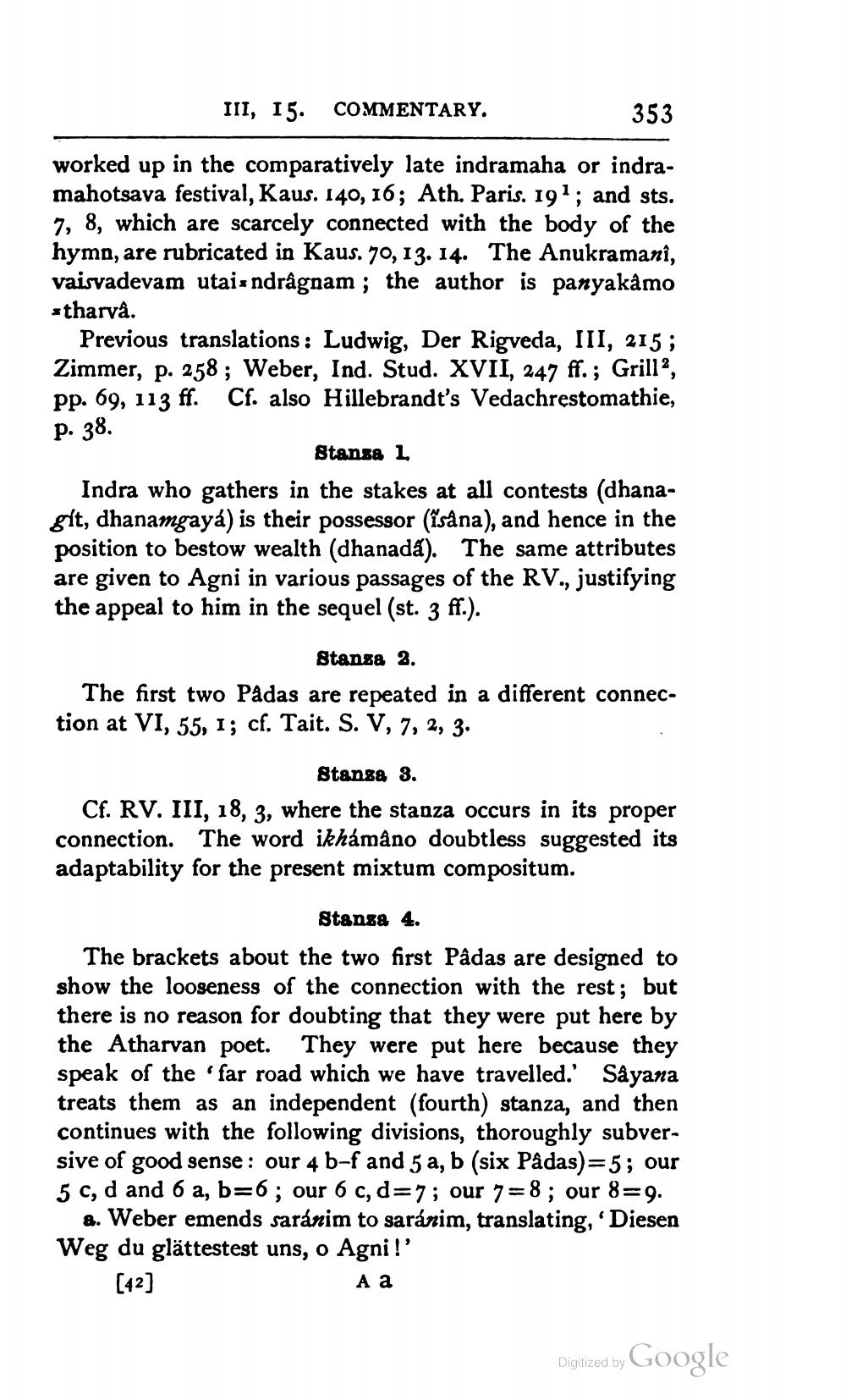________________
III, 15. COMMENTARY.
353
worked up in the comparatively late indramaha or indramahotsava festival, Kaus. 140, 16; Ath. Paris. 191; and sts. 7, 8, which are scarcely connected with the body of the hymn, are rubricated in Kaus. 70, 13. 14. The Anukramani, vaisvadevam utais ndrågnam; the author is panyakamo stharva.
Previous translations: Ludwig, Der Rigveda, III, 215; Zimmer, p. 258 ; Weber, Ind. Stud. XVII, 247 ff.; Grilla, pp. 69, 113 ff. Cf. also Hillebrandt's Vedachrestomathie, p. 38.
Stansa 1 Indra who gathers in the stakes at all contests (dhanagit, dhanamgaya) is their possessor (i såna), and hence in the position to bestow wealth (dhanada). The same attributes are given to Agni in various passages of the RV., justifying the appeal to him in the sequel (st. 3 ff.).
Stansa 2. The first two Pâdas are repeated in a different connection at VI, 55, 1; cf. Tait. S. V, 7, 2, 3.
Stansa 3. Cf. RV. III, 18, 3, where the stanza occurs in its proper connection. The word ikhámano doubtless suggested its adaptability for the present mixtum compositum.
Stanse 4.
The brackets about the two first Pâdas are designed to show the looseness of the connection with the rest; but there is no reason for doubting that they were put here by the Atharvan poet. They were put here because they speak of the 'far road which we have travelled. Såyana treats them as an independent (fourth) stanza, and then continues with the following divisions, thoroughly subversive of good sense: our 4 b-f and 5 a, b (six Pâdas)=5; our 5 c, d and 6 a, b=6; our 6 c, d=7; our 7=8; our 8=9.
8. Weber emends saránim to saránim, translating, 'Diesen Weg du glättestest uns, o Agni!'
Аа
[42]
Digized by Google
Digitized by




